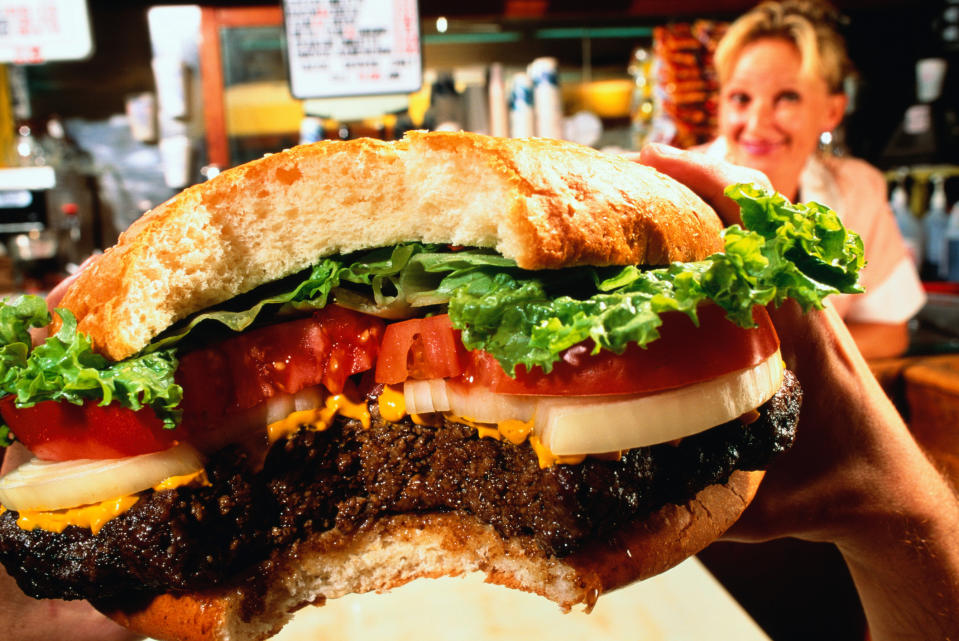Why you should skip the side of fries and order two burgers instead
The next time a fast food server asks if you’d like fries with that –ask for an extra burger instead.
The advice comes from registered dietitian and nutritionist Emily Field, who encourages her clients to stop labeling foods “bad” and “good” and to start eating balanced meals instead.
“I want people to be able to approach any food, any situation, and know that they can still make a responsible choice for their body,” she told Business Insider.

According to Field, there are three components to a food: proteins, carbs and fat. Protein is made up of amino acids — it keeps you full and helps build and repair muscle tissue.
Carbs provide energy, and dietary fat helps you absorb fat-soluble vitamins and minerals (including vitamins A and D) while keeping cells healthy. When you eat a meal that balances all three components, you’ll have fewer cravings and likely won’t binge eat.
ALSO SEE: Eating meat apparently makes you more likely to be a snob (and racist, too)

Research supports this theory — food balance is critical because of the role micronutrients have in regulating blood sugar levels. When you eat food that is high in carbs, your digestive system breaks down the digestible carbs into sugar, which enters the blood. With high blood sugar levels, the pancreas produces insulin, which encourages cells to absorb blood sugar for energy.
Look at it this way: A meal high in carbs and low in protein (i.e. cereal), can cause rapid spikes and falls in blood sugar — this can lead to a burst of energy followed by fatigue and hunger one to three hours after a meal. But if you balance protein, fat and carbs in your meal (i.e. add protein-rich yogurt or nuts to your cereal) you can avoid the hunger crash.
The same theory applies to fast food, says Field.
ALSO SEE: Canada’s unhealthiest fast food burgers

A burger consists of two pieces of bread and a piece of meat. If you skip the sauce and cheese, the burger will contain about 310 – 350 calories from carbs in the bread (approx. 40 grams), protein in the meat (approx. 17 grams) and fat (approx. 10 grams).
A side of french fries will have approximately the same amount of calories as a burger, with little protein. According to Field, if you skip the fries and order a second burger, you’ll double your protein and reduce the amount of carbs and fat you eat — this could help steady your blood sugar levels considering fast food is typically low in protein ad high in carbs and fat.
Above all, Field advises that you ask yourself one important question when planning a meal: “How am I going to feel two hours after I eat that?”
Let us know what you think by commenting below and tweeting @YahooStyleCA!
Follow us on Twitter and Instagram.



